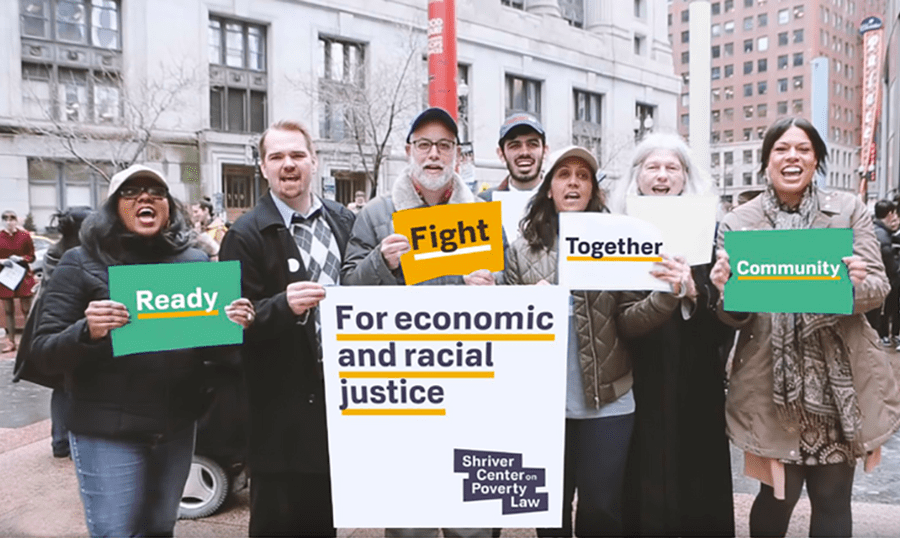
Over our 50-year history, the Shriver Center has secured hundreds of law and policy victories with and for people living in poverty in Illinois. Building on these wins and our comprehensive view of poverty, we connect and train lawyers, community leaders, and activists nationwide to advance opportunity — for all, not just some.
According to the Consumer Protection Financial Bureau, $88 billion in unpaid medical bills are in the hands of debt collectors. That’s more than any other type of personal debt. One unexpected procedure or sudden loss of employment can have devastating financial consequences for families and individuals in need of health care.
Many individuals living in poverty are working more than one job, yet still struggle to make ends meet. People employed in low-wage or part-time positions are caught in a cycle where their earnings fall short of covering basic needs like food, utilities, and rent. Their reality of juggling multiple jobs challenges the narrative that poverty is a result of personal shortcomings.
Last month, the Centers for Medicare and Medicaid approved the state’s application to use Medicaid funds for assistance with nutrition, housing, violence reduction and prevention, and transitions out of incarceration. It makes Illinois the first state to tackle such a broad range of social factors through Medicaid.
Crime-free nuisance ordinances (CFNOs) are municipal laws and policies that single out properties where alleged nuisances occur. These activities can be noise disturbances or emergency service calls. CFNOs hold tenants responsible through fines and evictions, among other penalties. This puts domestic violence victims and people with disabilities at risk, who often seek emergency services and police assistance.
People with low income are particularly vulnerable to systems that criminalize poverty. Fines and fees like speeding tickets, city sticker fees, and court costs create financial burdens and trap individuals in cycles of hardship.
All families deserve to live in dignity and see their children thrive. A coalition that includes the Shriver Center on Poverty Law won a major victory for Illinois families this legislative session with passage of the state’s first-ever child tax credit.
In 2022, Gov. J.B. Pritzker created a task force to examine racial inequities in the child welfare system and offer solutions. Last month, the task force issued more than 50 recommendations that call for investing in families with low income, not surveilling and separating them.
In this year’s spring legislative agenda, the Shriver Center on Poverty Law advocated for progressive policies across the board that would garner real wins for individuals and families.
✔️ Find out about our anti-poverty advocacy
✔️ Read exclusive analyses of the politics shaping the fight for economic and racial justice
✔️ Learn about how our racial justice trainings can help you meet the moment